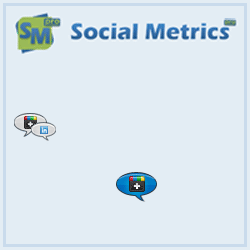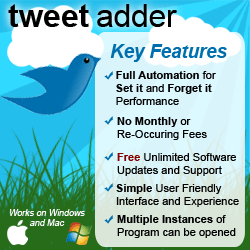Social Media Glossary Q-T
 A to Z of Social Media Terms
A to Z of Social Media Terms
Are you confused with all of the buzz-words that surround Social Media and Social Networking? Don’t know your podcasting from your vodcasting?
Ever wondered the meaning of Search Engine Optimisation? And what exactly is a vlog? Or blogging? Or the blogosphere?
Fret no more! Here for the first time, in my wonderfully simplified Social Media Glossary are my definitions for all the latest social media buzzwords doing their rounds.
Did I miss something? CLICK HERE to tell me about the missing social media term and I’ll add it.
A-D| E-H | I-L | M-P | Q-T | U-Z
Readiness
A check on whether you – or your organisation – are prepared to engage with social media. An obvious issue is whether you feel technically confident – but a further issue then is whether as an individual you are ready to “find your voice” online, or whether as an organisation you will be comfortable with an open and non-hierarchical environment. Everyone will have different preferences on how to engage online, so it may be best to lurk, explore, and try small steps.
Registration
The process of providing a username, password and other details when seeking to access a website that has restricted access. See logging in.
Remixing
Social media offers the possibility of taking different items of content, identified by tags and published through feeds, and combining them in different ways. You can do this with other people’s content if they add an appropriate copyright license.
Roles
Parties need hosting, committees need chairing, working groups may need facilitation. Online networks and communities need support from people who may be called, for example, technology stewards or network weavers. Champions are the core group of enthusiasts you need to start a community.
RSS – RSS Feeds
RSS stands for “Really Simple Syndication” and is a family of web feed formats used to publish frequently updated information, including blogs, news headlines, and video, allowing users to subscribe and receive this information almost instantaneously and automatically rather than having to go and seek it out. allows you to subscribe to content on blogs and other social media and have it delivered to you through a feed.
Search Engine Optimisation
See SEO
Searching
Searching for information on the Net is done using a search engine, of which Google is the best known. Specialist search engines like Technorati concentrate on blogs. As well as searching by word or phrase you can search on tags, and so find content others have keyworded.
Segment
A section of a podcast that generally completes a topic; a complete podcast might have 2, 3, or 4 segments.
SEO
Stands for “Search Engine Optimisation , which is the use of various techniques to improve a web site’s ranking in the search engines and thus attract more visitors.
Sharing
Offering other people the use of your text, images, video, bookmarks or other content by adding tags, and applying copyright licenses that encourage use of content.
Skype
An Internet telephony service that lets you make calls via an Internet connection.
Slivercasting
The increasingly popular practice of broadcasting niche-audience films over a high-speed Internet connection rather than using costlier TV/network channels.
Silversurfer
An adult, generally 50 years of age or older, who frequently surfs the Web and spends time online (“silver” refers to the colour of their hair). Silver surfers are considered netizens, experienced users of the Net. The phrase silver surfer is commonly heard in the U.K., but applies to midlife adults (generally those in their 40s, 50s and 60s), and seniors (age 70 and over) everywhere.
Social bookmarking
A social bookmarking service is a centralised online service which enables users to add, annotate, edit, and share bookmarks of web documents. Many online bookmark management services have launched since 1996; Delicious, founded in 2003, popularised the terms “social bookmarking” and “tagging“. Tagging is a significant feature of social bookmarking systems, enabling users to organize their bookmarks in flexible ways and develop shared vocabularies known as folksonomies.
Social media
Term for the tools and platforms people use to publish, converse and share content online. The tools include blogs, wikis, podcasts, and sites to share photos and bookmarks.
Social networking
Online places where users can create a profile for themselves, and then socialise with others using a range of social media tools including blogs, video, images, tagging, lists of friends, forums and messaging.
Social Networking Marketing (SNM)
The planned, often paid, use of social networking to create interest and awareness of a brand, product or specific promotion.
Social Networking Optimization (SNO)
Approaches and methodologies used to increase the positions of various social sites and postings on search engines.
Social Networks
Online communities of people who share interests and activities, or who are interested in exploring the interests and activities of others. Social networks provide a variety of ways for users to interact, such as e-mail and instant messaging services. (Wikipedia www.wikipedia.com) The most common social networks include My Space, Facebook, LinkedIn, 4Networking and Plaxo.
Social Search
An online search of social sites that determines the relevance of search results by considering the interactions or contributions of users. Social search metrics are evolving and currently include both automated software as well as human judgments about the nature of web content.
Social Tagging
The placement on shared social sites of keywords that describe the content of a website, bookmark, photo or blog post. Tag-enabled web services include social bookmarking sites (i.e. del.icio.us), photo sharing sites (i.e. Flickr) and blog tracking sites (i.e. Technorati). Social tagging provides a useful way of organizing, sharing, retrieving and discovering information.
SoLoMo
SoLoMo’ refers to the growing prevalence of localised social interaction between commercial entities and consumers through mobile devices.
Splogs
Blogs created by spammers (Sploggers) for the sole purpose of increasing site traffic and page ranks in order to generate revenue. Splogs are filled with keywords, news (real or fake) and links to websites.
Startpage
Like Pageflakes, Netvibes or Google Personalised Home page – is web page that you can configure to pull in content from a range of web-based services including email, feeds from blogs and news services. It is a multi-purpose aggregator. Home pages used to be static affairs providing a sort of shop window for a site. They can now be your ever-changing window into the Net, and a way of organising a lot of different activities.
Stinger
A brief sound or musical phrase used as “audio punctuation.”
Stream
The term is typically used as a verb: video streaming or audio streaming. Generally it means “play” like one would play a video or audio. More specifically, it describes a constant flow of digital information that is displayed or played as it arrives, as opposed to downloading a whole file and then playing. Some misuse the term as a synonym of download. To fluidly stream audio or video files requires some bandwidth (or, space on a hosting server); otherwise the material stops and starts.
Stories
As well as conversations, stories are a strong theme in blogging. Anecdotes, bits of gossip and longer narratives work particularly well on blogs if they have a personal angle. It helps others get to know the blogger – and helps the blogger find and extend their voice.
Subscribing
The process of adding an RSS feed to your aggregator or newsreader. It’s the online equivalent of signing up for a magazine, but usually free.
SuperBlog
A fully hosted blog service which is rapidly being adopted as a low cost, fast-track method enabling non-technical individuals to join the online blogging community. The SuperBlog service offers support and training for businesses and individuals enabling them to rapidly get the maximum return from their social networking activities with minimum effort and technical knowledge. SuperBlog’s are available at various levels to suit a variety of technical abilities, budgets and timescales.
See www.superblog.biz for more information.
Synchronous communications
Communications that occur in real time, like chat, audio or video. Face-to-face communication is synchronous in the same place. Telephony is synchronous, in different places; The Internet extends the scope for both types of communication.
Tagging
A way of categorising online content using keywords that describe what can be found at a website, bookmark, photo or blog post.
Tags
Tags are keywords attached to a blog post, bookmark, photo or other item of content so you and others can find them easily through searches and aggregation. Tags can usually be freely chosen – and so form part of a folksonomy – while categories are predetermined and are part of taxonomy.
Taxonomy
An organised way of classifying content, as in a library. Providing contributors to a site with a set of categories under which they can add content is offering a taxonomy. Allowing people to add their own keywords is to endorse folksonomy.
Technology Steward
Someone who can facilitate community and network development. Nancy White offers the definition: “Technology stewards are people with enough experience of the workings of a community to understand its technology needs, and enough experience with technology to take leadership in addressing those needs. Stewardship typically includes selecting and configuring technology, as well as supporting its use in the practice of the community”.
Teleconferencing
Holding a meeting without being in the same place, using a network connection and tools like Voice over IP, Instant Messaging, Video, and Whiteboards.
Terms of services
The basis on which you agree to use a forum or other web-based place for creating or sharing content. Check before agreeing what rights the site owners may claim over your content.
Threads
Strands of conversation. On an email list or web forum they will be defined by messages that use the use the same subject. On blogs they are less clearly defined, but emerge through comments and trackbacks.
Thumbtribe
People who are skilled at using their thumbs to manipulate objects such as cell phone keys, small joysticks, and notebook computer pointers. (See Oyayubizoku)
Time-Shift or Time-Shifting
Used as a verb, people schedule when they want to listen or watch a program. TIVO and other digital video recorders allow people to time shift television programs. Podcasting’s popularity is built upon the opportunity to time-shift. Someone can download a program and listen to or view it at their convenience, during a commute, while at the gym, while on an airplane or any other convenient time.
Tool
Term used as shorthand for a software applications on your computer, and also for applications that are Web-based.
Topic
An online discussion is an idea, issue – talking point – in a conversation that is made up of threads.
Trackback
Some blogs provide a facility for other bloggers to leave a calling card automatically, instead of commenting. Blogger A may write on blog A about an item on blogger B’s site, and through the trackback facility leave a link on B’s site back to A. The collection of comments and trackbacks on a site facilitates conversations.
Transparency
Enhancing searching, sharing, self-publish and commenting across networks makes it easier to find out what’s going on in any situation where there is online activity.
Troll (Internet)
In Internet slang, a troll is someone who posts inflammatory, extraneous, or off-topic messages in an online community, such as a forum, chat room, or blog, with the primary intent of provoking readers into an emotional response or of otherwise disrupting normal on-topic discussion. The noun troll may also refer to the provocative message itself, as in: “That was an excellent troll you posted.”
While the word troll and its associated verb trolling are associated with Internet discourse, media attention in recent years has made such labels subjective, with trolling describing intentionally provocative actions and harassment outside of an online context. For example, mass media has used troll to describe “a person who defaces Internet tribute sites with the aim of causing grief to families.”
A-D| E-H | I-L | M-P | Q-T | U-Z
Social Media Glossary Appendix:
Sources:
- www.en.wikipedia.org
- www.netlingo.com
- www.google-kai.com/social-networking-glossary.html
- www.socialmedia.wikispaces.com/A-Z+of+social+media
- www.duranos.com/resources/web-glossary/
- www.fullcirc.com/weblog/2006/08/updating-my-online-interaction.htm
- www.problogger.net/archives/2006/06/27/a-z-of-professional-blogging/
- www.slideshare.net/travelinlibrarian/tech-terms
- www.digitaldialogues.org.uk/interimreport/glossary






